Sustainability/Climate Change
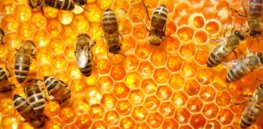
Trace amounts of neonicotinoid pesticides found in 75% of honey samples worldwide—’far below’ levels dangerous to humans
A new study has found traces of neonicotinoid chemicals in 75% of honey samples from across the world. The scientists ...
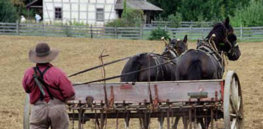
Do GMOs, pesticides cause cancer? The Amish would say ‘no’
Amish farmers may not get cancer as much, but it's not because they don't use pesticides or GMOs. In fact, ...

Guided evolution of wheat and other grains could feed growing population
Can we breed wheat and other cereal grains with the ability to fertilize themselves? Researchers report promising results that could ...

Are ‘free-from’ (gluten, GMO) food labels informative—or misleading?
What could be conceptually simpler than labeling a food product? You tell the customers what’s in the product, or maybe ...
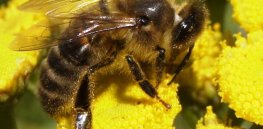
UK environmental groups ramp up effort to ban ‘bee-harming’ neonicotinoids
Environmental group Friends of the Earth has released a YouGov survey showing that over three quarters of the UK public ...
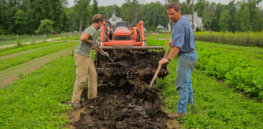
Pass the manure: Organic farming practices increase planet-warming methane emissions
The realization that livestock like cows are ruminants - and produce a lot of methane while chewing - was a ...

Scientists urge US Interior Department to lift ban on GMO seeds
The Information Technology and Innovation Foundation (ITIF), one of the world’s top science and technology think tanks, along with a ...
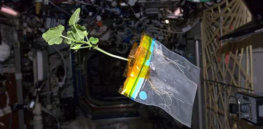
GMO seeds could be critical for extended space travel, colonization
If we hope to colonize space, scientists must figure out how to feed astronauts on journeys that could last years ...

Calls to ban glyphosate, neonics highlight need to ‘protect science’, say French corn farmers
At a meeting hosted on Wednesday [27 September] by CEPM, the maize lobby in Europe, maize farmers stressed the need ...
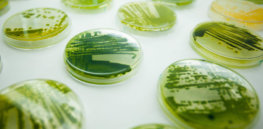
GMO algae—environmentally-friendly alternative to palm oil—runs into resistance
When green cleaning company Ecover announced the launch of a new laundry liquid containing an oil made from algae, as ...

Viewpoint: Conventional farmers take better care of soil health than media portrays
[Editor’s Note: Amanda Zaluckyj is a practicing attorney and farmer's daughter who shares her family's story at The Farmer's Daughter ...

Genetic engineering could increase biofuel production by fattening plant leaves
While there are legions of plant researchers dedicated to the idea of using GMOs to maximize food production, there's a ...

Talking Biotech: Is genetic engineering the best way to resuscitate the American chestnut from blight?
Plant biologist Jared Westbrook: 4 billion American chestnut trees have died because of blight in the 20th century. Now, there ...

Creating ‘super wheat’: Genetic modification supercharges photosynthesis
A growing global food demand is challenged by the problem of limited crop-growing space. Could GMO-edited wheat meet this need ...

Viewpoint: Restrictions on GMOs a ‘catastrophe’ for Australian farmers
Onerous and expensive regulations have denied farmers’ access to new and existing Genetically Modified (GM) crop varieties and reduced their ...

Viewpoint: No, Big Ag doesn’t ‘control’ the world’s food supply
Is there truth to a common anti-GMO narrative that large multi-national companies seek to “control the food supply” through patents ...

Uganda on track to pass ‘biotech bill’ that should pave way for GMO crop commercialization
Uganda’s long-awaited national Biotechnology and Biosafety Bill was delayed again yesterday, but is likely to be passed next Tuesday [Oct ...

Viewpoint: Politico exaggerated link between climate change and food ‘nutrient collapse’
Politico offered the following headline, The great nutrient collapse, The atmosphere is literally changing the food we eat, for the ...

Challenging food movement: Small, organic farms not key to fixing food system
[Buying food from small, local, organic farms] cannot fix that chemical-intensive system that crowds out biodiversity, depletes the soil, pollutes ...

UK science advisor: Agricultural pesticides important, but better regulations needed to limit environmental impacts
The assumption by regulators around the world that it is safe to use pesticides at industrial scales across landscapes is ...
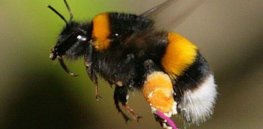
Tale of two neonicotinoid bumble bee studies—And how science can be massaged
Are neonics dangerous for bees? Two studies published on the same day reached sharply different conclusions. Guess which one got ...

Lab-grown fried chicken? ‘Alternative’ meat company adds poultry options
In April, Memphis Meats [offered] taste samplings of fried chicken and Duck a l’Orange, both made by growing animal cells ...

Second Green Revolution: Stress-tolerant rice varieties increase crop yields, food security
According to [International Rice Research Institute (IRRI)], the global rice demand is estimated to increase from 439 million tons in ...

Viewpoint: ‘Blistering’ USDA organic report suggests ‘movement’ needs major reforms
The USDA report detailing poor oversight by the agency’s National Organic Program challenges the belief that consumers can trust organic ...

UK farmers have ‘deep concerns’ over potential EU neonicotinoid ban, survey shows
British arable farmers have deep concerns regarding the European Commission's proposal to ban all outdoor uses of neonicotinoid seed treatments ...
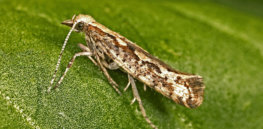
Talking Biotech: Using GMO insects instead of pesticides to fight diamondback moth, other crop-killing pests
Cornell entomologist Tony Shelton: Using GMO insects to control diamondback moths—a global pest that quickly evolves resistance to insecticides ...
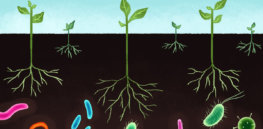
GMO nitrogen-fixing microbes could one day help plants fertilize themselves
Peanuts, peas, and many types of beans are climate-friendly because they basically make their own fertilizer. They play host to ...

